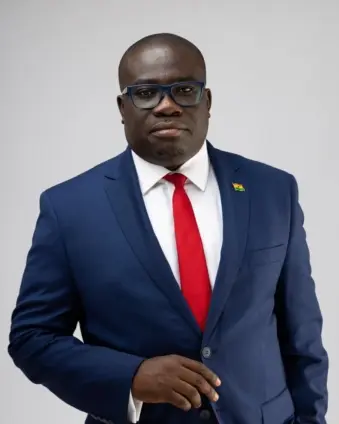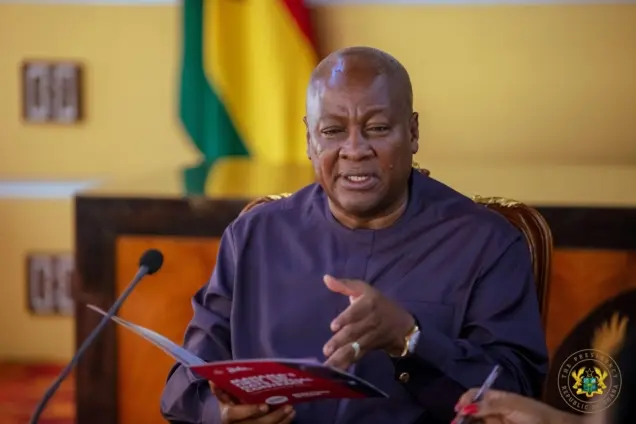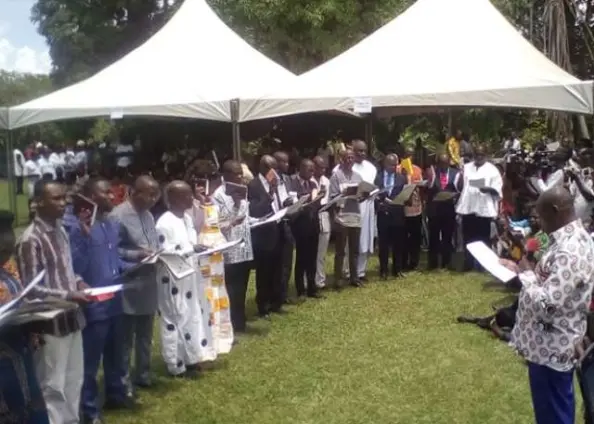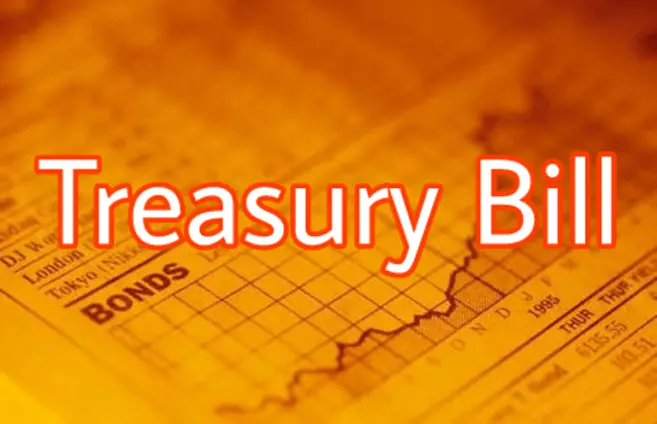In a statement that has stirred considerable debate, Dr. Mahamudu Bawumia, the former Vice President and flagbearer of the New Patriotic Party (NPP) in the 2024 elections, attributed his party’s defeat not to the opposition’s strength, but to its own supporters’ absence. “The NDC did not win the 2024 elections; the NPP lost it,” Bawumia declared during a “Thank You Tour” in London, pointing to significant voter apathy and a decline in turnout from the NPP’s traditional base. This analysis of voter turnout Ghana election 2024 aims to dissect Bawumia’s claims, examining the data and context surrounding his perspective on the election outcome.
This article will delve into the heart of Bawumia’s argument concerning voter turnout Ghana election 2024, providing a clear understanding of how this factor influenced the recent election results. The focus is on verifiable data and direct quotes to present an unbiased and informative view on this critical aspect of Ghanaian politics.
The Core of Bawumia’s Argument: Voter Apathy
Bawumia’s central argument rests on the premise that a significant number of NPP supporters simply did not vote. He argues that this voter turnout Ghana election 2024, or lack thereof, was the decisive factor in the party’s loss.
NPP’s Declining Votes: A Statistical Overview
According to Bawumia, the numbers tell a clear story. He stated that NPP votes declined by 2.1 million relative to the 2020 elections. “Our votes declined by 2.1 million relative to 2020, so that is where the problem was. 2.1 million people who voted for us in 2020 did not turn up to vote in 2024,” Bawumia explained. This substantial drop represents a significant portion of the NPP’s support base, raising questions about why these voters stayed home.
The Missed Opportunity: What If Those Voters Had Turned Up?
Bawumia believes that had those 2.1 million voters participated, the election outcome would have been different. “If these 2.1 million people had come out to vote for us, like they did in 2020, we would have won the election hands down,” he asserted. While this is a hypothetical scenario, it underscores the perceived importance of voter turnout in determining the election results.
Regional Breakdown: Where Apathy Hit Hardest
To further illustrate his point, Bawumia provided a regional breakdown of voter apathy, highlighting specific areas where the decline in turnout was most pronounced.
The Six Regions Accounting for 84% of Absentee Voters
Bawumia identified six regions—Greater Accra, Ashanti, Eastern, Western, Bono, and Central—as accounting for 84% of the 6.1 million registered voters who did not cast their ballots. These regions are traditionally considered NPP strongholds, making the decline in voter turnout even more significant. The following data highlights the extent of non-participation:
| Region | Non-Voting Registered Voters (According to Bawumia) |
|---|---|
| Greater Accra | 571,000 |
| Ashanti | 429,000 |
| Eastern | 258,000 |
| Western | 164,000 |
| Bono | Approximately 100,000 |
“Greater Accra region, you had 571,000 people who did not vote. Ashanti region, you had 429,000. Eastern region, 258,000. Western region, 164,000. Bono region, about 100,000,” Bawumia stated, emphasizing the scale of voter disengagement in these key areas.
The Lone Exception: North East Region
Interestingly, Bawumia noted that the North East region was the only region where NPP votes actually increased. “The only region in Ghana where the NPP votes went up in 2024 was the North East region, which is the region I come from,” he said. This exception could be attributed to Bawumia’s personal connection to the region, potentially motivating higher voter turnout among his supporters there.
Was Voter Apathy Orchestrated?
Bawumia went a step further, suggesting that the widespread voter apathy might not have been entirely organic, raising questions about potential orchestration.
The Pervasive Nature of Voter Disengagement
He described the voter apathy as unusually widespread across almost every constituency in Ghana. “What happened was very pervasive across almost every constituency in Ghana… People were saying they were not coming out to vote,” Bawumia noted. This widespread disengagement raised suspicions about its underlying causes.
A Pre-Planned Decision? Bawumia’s Suspicion
Bawumia suggested that the voter disengagement appeared almost orchestrated, given its consistency across different regions. “This behaviour was so similar, across from Axim to Zebilla… It is almost as though they had a meeting before and decided that on the day we are not coming out,” he stated. While this is speculation, it reflects Bawumia’s concern that factors beyond simple apathy may have contributed to the low voter turnout.
Implications and Reactions
Bawumia’s comments represent a candid acknowledgement of the challenges faced by the NPP in the recent elections. It’s his most direct public admission yet of the party’s internal collapse at the polls. Notably, he did not accuse the Electoral Commission or the opposition of any wrongdoing, focusing instead on internal dynamics within the NPP’s support base.
The broader implications of Bawumia’s statements are significant for both the NPP and Ghanaian politics. His analysis is likely to spark internal discussions within the party about strategies to re-engage with its base and address the issues that led to voter apathy. Reactions from other political figures and parties are expected, as Bawumia’s claims are likely to be scrutinized and debated in the coming weeks and months.
In conclusion, Dr. Bawumia’s analysis of the 2024 Ghana election results places significant emphasis on voter turnout Ghana election 2024, attributing the NPP’s loss to widespread apathy, particularly in key regions, and suggesting the possibility of orchestrated disengagement. His focus remains on internal factors within the NPP rather than external interference, setting the stage for potential reforms and strategic shifts within the party. This detailed examination underscores the critical role of voter engagement in shaping election outcomes and highlights the challenges political parties face in mobilizing their support base.
Image Source: MYJOYONLINE






















